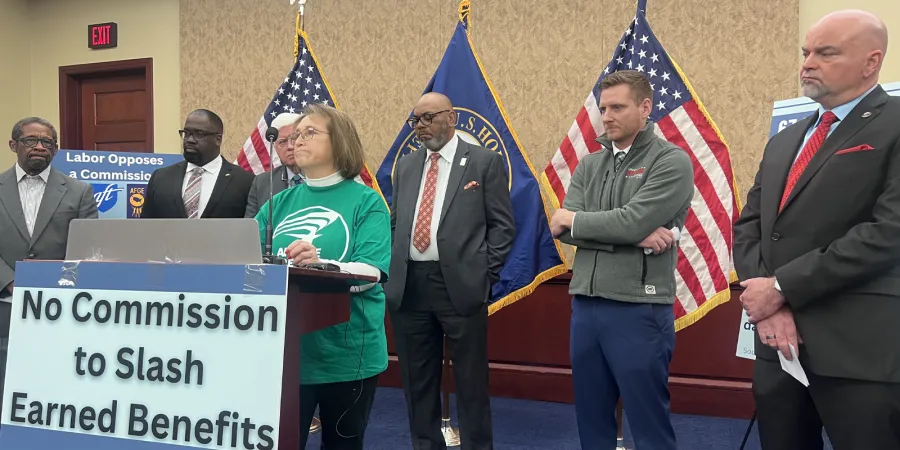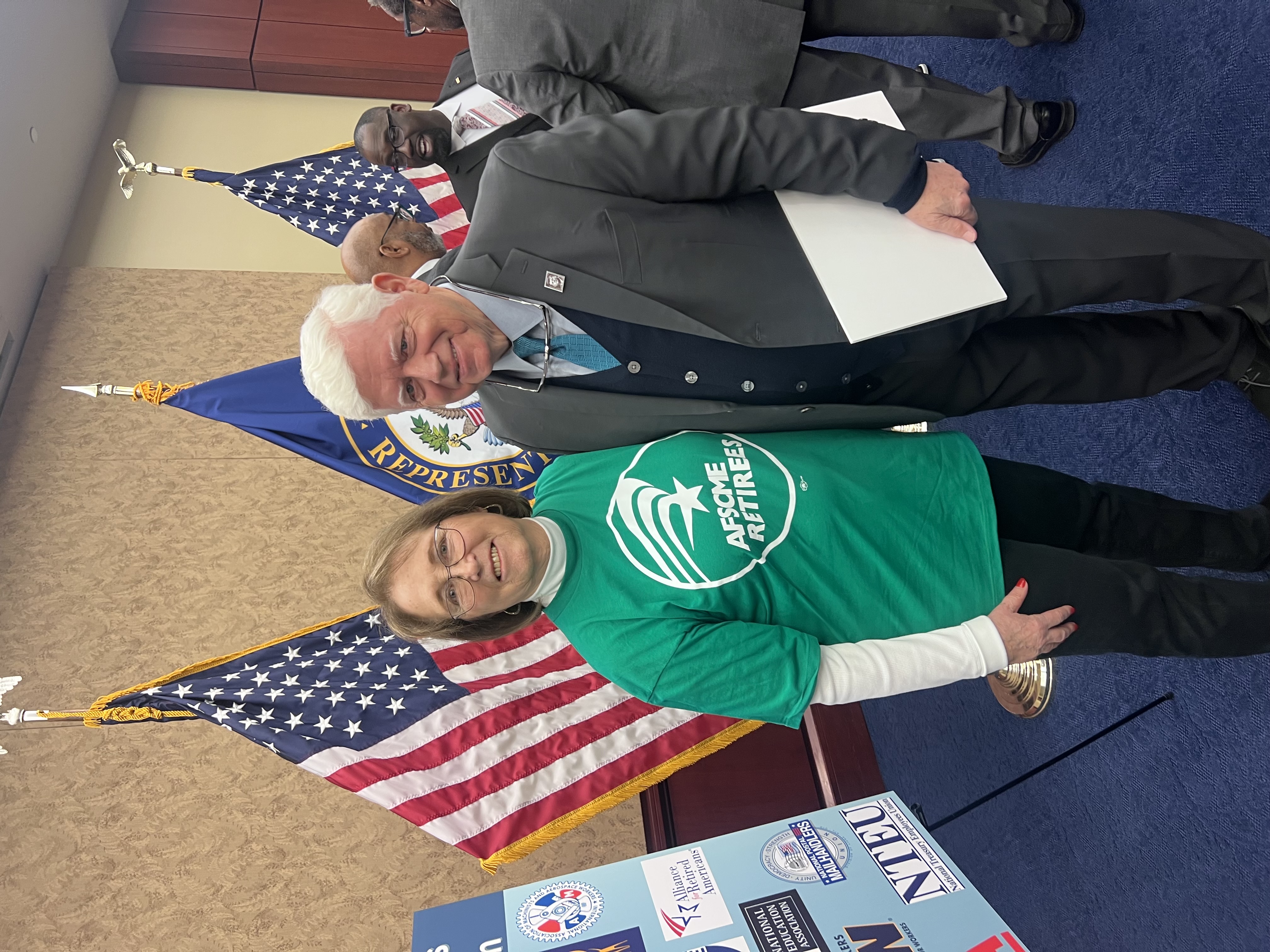AFSCME retiree blasts fiscal commission bill as a backdoor way to gut Social Security, Medicare

 [/caption]
[/caption]Mary Cannon-James, president of AFSCME Iowa Retiree Chapter 61, spoke Thursday at a Capitol Hill event hosted by Rep. John Larson (D-Conn.), warning of the risks to older Americans like her if the Fiscal Commission Act (H.R. 5779) becomes law.
The bill is a solution in search of a problem. It would convene a group of experts – individuals who surely don’t or won’t depend on monthly Social Security checks to pay the bills – to address a so-called fiscal crisis that doesn’t actually exist.
The commission, like others that were set up in the past, could gut Social Security, Medicare and other safety net programs and squeeze people like Cannon-James, who retired and then reentered the workforce to make ends meet. She still works for the state of Iowa and relies on Social Security to get by.
“I started working for the state of Iowa when I was 19 years old,” Cannon-James, 75, said in remarks prepared for the event. “Throughout my career, I played a meaningful role in the lives of working families as an unemployment insurance hearing officer. After 35 years working for the state, I retired.”
Cannon-James and her husband had been looking forward to their next chapter, when her husband died unexpectedly. Under a U.S. Supreme Court ruling, she was stripped of the health care benefits she was to receive from her late husband, forcing her to go back to work.
“I am grateful for Social Security and Medicare, but they are not enough to get by,” said Cannon-James, who foots the bill for around 50% of her many health care costs. “I am barely scraping by to make my house payment, car payment, along with other necessities. Making ends meet is very difficult, which is why, at 75 years old, I have a full-time job.”
A fiscal commission, Cannon-James warned, would hurt seniors and others who rely on crucial programs. Fiscal commissions sidestep, or fast-track, the deliberative legislative process. And they have hurt seniors and public service workers in the past. A previous fiscal commission’s work led to the harmful Government Pension Offset (GPO) and Windfall Elimination Provision (WEP) that unfairly cuts public service workers and their spouses’ Social Security benefits. Other commissions have tried to privatize Social Security, raised the retirement age and have reduced cost-of-living adjustments.
“At a time when corporations and CEOs are making record profits and paying next to nothing in taxes, Congress should focus on identifying ways to protect and expand Medicare and Social Security, not cut them. These programs are not just numbers on a budget; they are vital for my well-being and that of tens of millions of other retired Americans,” said Cannon-James.
Larson, the Connecticut congressman, noted that more than 100 organizations oppose a fiscal commission because of the threat it poses to the programs working Americans depend on. AFSCME and a host of other labor unions are among them.
“I am glad to be joined by our nation’s labor leaders to express how dangerous this commission is for our working families who have earned their benefits with every paycheck during their years of hard work,” Larson said in a press release. “Republicans want to form a fast-track commission that would cut benefits for more than 67 million Americans who rely on Social Security behind closed doors. I stand against these attacks on earned benefits and will continue to oppose any and all attempts to slash Social Security.”
While Americans support raising revenues, Cannon-James said a fiscal commission is not the way to do it.
“It is time for Congress to pass equitable tax policies that require corporations and the very wealthy to pay their fair share rather than relying solely on spending cuts to crucial programs,” said Cannon-James. “We need a thoughtful approach that ensures financial stability for everyone, not just the privileged few.”
